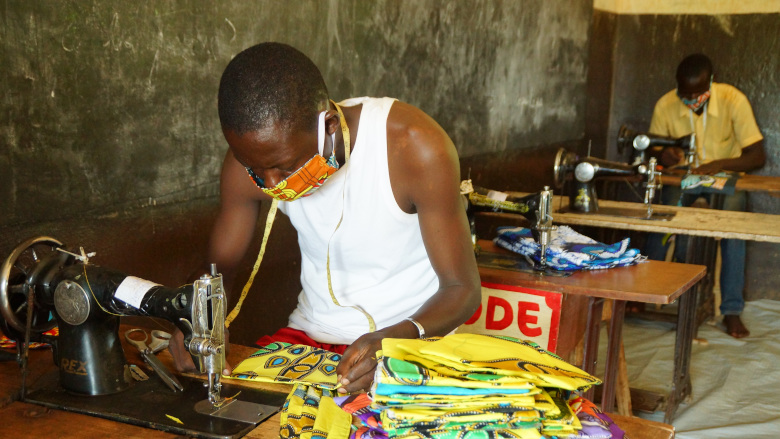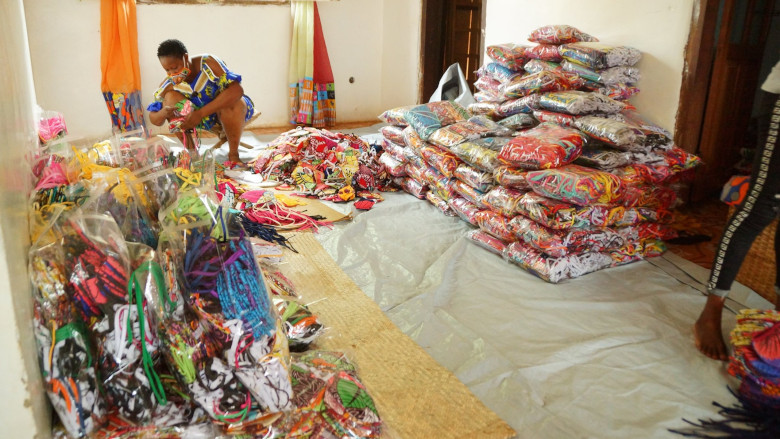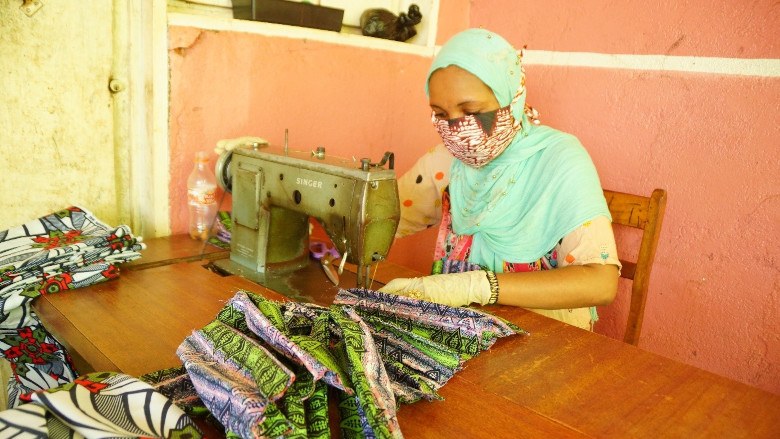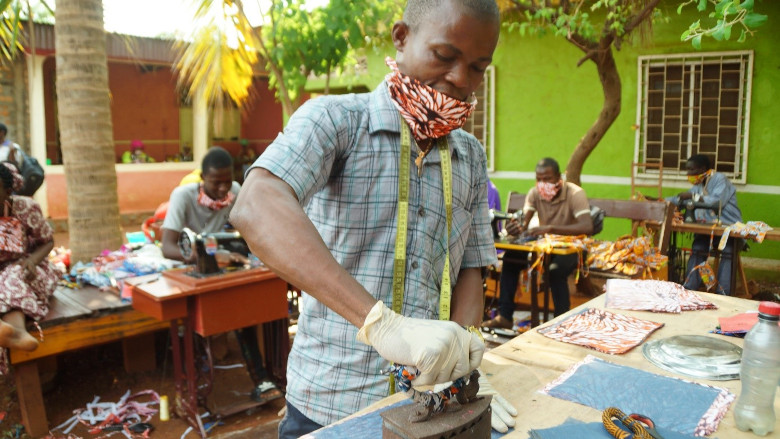BANGUI, August 3, 2020 – Beautiful African print face masks are now available for free distribution in the Central African Republic. Just two months ago, most citizens and health care workers were struggling in getting protective masks as the country was confronted with the spread of coronavirus cases.
Years of prolonged violence and conflict have ravaged the country’s weak health care system, and the COVID-19 (coronavirus) crisis is now shaking the economy and fragile stability, potentially pushing more than 140,000 people into extreme poverty according to recent World Bank estimates.
As the government stepped up its health response to the pandemic, the Central African Republic was one of the first countries on the continent to mandate the use of facial masks. And, like many countries around the world, was faced with a real dearth of masks in local and international markets. In countries where social distancing and confinement are difficult to impose, masks are an essential element of the response. Extraordinary times required an extraordinary solution. Ten million masks needed to be locally produced with standards respecting World Health Organization guidelines. In record time, the LONDO project («stand-up» in Sango) - currently the largest cash-for-work program in the country - was able to produce more than 2.4 million masks so far.
We have met with some of our experts and entrepreneurs who are producing local face masks and creating jobs during the pandemic to hear their story:
Mission Possible
“Just two months ago, the Minister of Health Pierre Somsé asked for the World Bank assistance in sourcing 10 million masks that could not be found on the international market. We had to find an innovative approach and we turned to the LONDO project and our partners,” shared Han Fraeters, World Bank Country Manager for the Central African Republic. “What started as a health response with a focus on saving lives by delivering protective masks, also became a response to the economic impact by providing livelihoods to 18,000 tailors who have been recruited and to 300 local firms that have been contracted through the project.”





